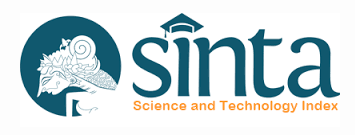URGENSI ETIKA PROFESI PENGEMBANGAN MASYARAKAT ISLAM
Abstract
Ethics becomes a guiding tool in running a profession. Profession is not only defined as work done with skill or expertise, because in fact the profession includes mastery of theoretical knowledge, theoretical (practical) and experiential implementation. Similarly, the work of the community facilitator profession, which requires an ethical standard to be used as a guide in carrying out its work.Using ethical comparative analysis according to Western and Islamic philosophy, which then attempts to formulate the urgency of the ethical profession of Islamic community facilitator, which includes (a) Guidelines for community facilitator to carry out their duties and responsibilities, (b) the system of norms for professional development and personality, c) benchmark in evaluating the professionalism of community facilitator work.References
Alex Sobur, Etika Pers Profesionalisme Dengan Nurani, Bandung: Humaniora Utama Press, 2001.
Departemen Pendidikan dan Kebudayaan, Kamus Besar Bahasa Indonesia Edisi II, Jakarta: Depdikbud, 1995.
Faisal Badroen, dkk, Etika Bisnis Dalam Islam, Jakarta: Kencana, 2015.
Franz Magis- Suseno, dkk, Etika Sosial, Jakarta: Gramedia Pustaka Utama, 1991.
HamzahYa’qub, Etika Islam, Bandung: Diponegoro, 1988.
Icol Dianto, Peranan Dakwah Dalam Pengembangan Masyarakat Islam, Jurnal Hikmah, Volume XII, Nomor 1, 2018.
John Scott, Sosiologi: The Key Conchepts, Jakarta: PT RajaGrafindo Persada, 2011.
Muhammad Jakfar, Anatomi Perilaku Bisnis Dialektika Etika Dengan Realitas, Malang: UIN Malang Press, 2009.
M. Munandar Soelaeman, Ilmu Sosial Dasar: Teori dan Konsep Ilmu Sosial, Bandung: Eresco, 1989.
Prayitno dan Erman Amti, Dasar-Dasar Bimbingan dan Konseling, Penerbit Rineka Cipta.
Soerjono Soekanto, Sosiologi: Suatu Pengantar, Jakarta: PT RajaGrafindo Persada, 2004.
Tanggor Hasibuan, Etika Publik,Modul Diklat Prajabatan Eselon 1, 2 dan 3 Pola Baru, 2014.
Wahyudin Sumpeno, Menjadi Fasilitator Genius, Yogyakarta: Pustaka Pelajar, 2009.
Once an article was published in the journal, the author(s) are:
granted to the journal right licensed under Creative Commons License Attribution that allows others to share the work with an acknowledgment of the work's authorship. permitted to publish their work online in third parties as it can lead to wider dissemination of the work. continue to be the copyright owner and allow the journal to publish the article with the CC BY license receiving a DOI (Digital Object Identifier) of the work.





